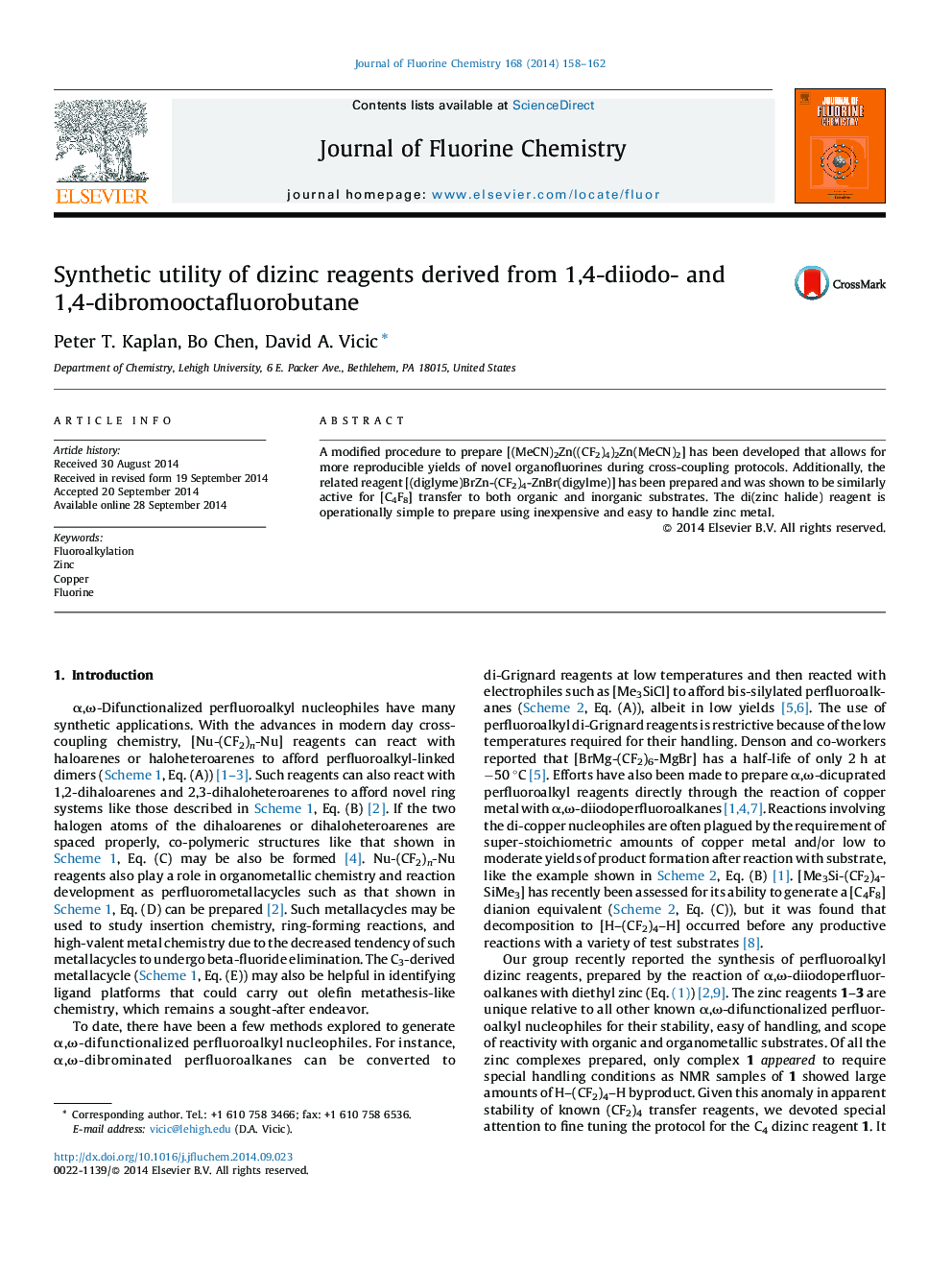| Article ID | Journal | Published Year | Pages | File Type |
|---|---|---|---|---|
| 1313814 | Journal of Fluorine Chemistry | 2014 | 5 Pages |
•The preparation of (solvent)nBrZn(CF2)4ZnBr(solvent)n is reported for the first time.•An X-ray structure of (THF)2BrZn(CF2)4ZnBr(THF)2 has been reported.•The stability of perfluoroalkyl dizinc reagents has been quantified and compared with Grignard derivatives.•The perfluoroalkyl dizinc reagents have been used to prepare novel organics containing perfluoroalkyl ring systems.
A modified procedure to prepare [(MeCN)2Zn((CF2)4)2Zn(MeCN)2] has been developed that allows for more reproducible yields of novel organofluorines during cross-coupling protocols. Additionally, the related reagent [(diglyme)BrZn-(CF2)4-ZnBr(digylme)] has been prepared and was shown to be similarly active for [C4F8] transfer to both organic and inorganic substrates. The di(zinc halide) reagent is operationally simple to prepare using inexpensive and easy to handle zinc metal.
Graphical abstractA modified procedure to prepare [(MeCN)2Zn((CF2)4)2Zn(MeCN)2] has been developed that allows for more reproducible yields of novel organofluorines during cross-coupling protocols. Additionally, the related reagent [(diglyme)BrZn-(CF2)4-ZnBr(digylme)] has been prepared and was shown to be similarly active for [C4F8] transfer to both organic and inorganic substrates. The di(zinc halide) reagent is operationally simple to prepare using inexpensive and easy to handle zinc metal.Figure optionsDownload full-size imageDownload as PowerPoint slide
